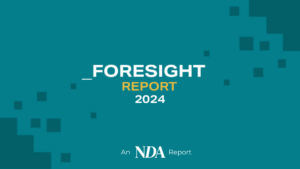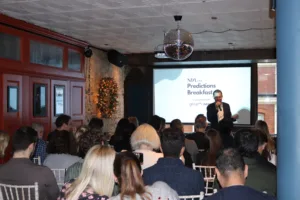New insights revealed today by The CLV Group, show that a failure to understand the unique nature of their fans, global audiences and their interests means that the Premier League’s Big Six clubs are currently leaving around £700mn+ of revenue on the table. In the process, they are missing out on delivering a stronger return on investment into their partnerships.
The latest edition of the Fan Relationship Index report uses original research techniques and analysis of data from around the globe to show how the make-up of fans is not homogenous – but in fact, varies widely from club to club. As a result, one club, for example, may be well-placed to activate a deal in the entertainment sector while another may have an advantage in making a partnership with a crypto-asset company work.
Whilst Tottenham, lead the way with a digital-first stadium and adoption of digital wallets to access live matchday experiences, the sheer global audience size and characteristics of Manchester United’s fans in key football markets means that the club could activate a crypto partnership worth £123mn to the club, while across the city Manchester City’s potential in the same sector is valued at just £29mn.
Following in the footsteps of the largest media companies in the world such as Netflix, Disney+ and Amazon, the clubs can develop, own, control and or distribute content far and wide to cultivate direct-to-fan and audience engagement globally. Whilst Manchester United lead the way with c.£100mn, there are £50mn+ of revenue opportunities for Arsenal, Chelsea, Man City, Liverpool and Tottenham too… laddering up to a c.£350mn+ content and entertainment opportunity for the group of clubs.
Commenting on the report, CLV Group CEO, Neil Joyce, says that clubs should be doing more to better understand their fans and to create new propositions, underpinned by data and content, to engage with the matchday fan and global digital audience:
“Ultimately clubs want to develop direct-to-fan propositions and global audience strategies that are based upon what fans and global audiences want, need and care about. Right now, too many clubs look tactically at the surface level revenue that traditional sponsorship deals present, and those add limited value to fans.
So, creating partnerships which serve the particular characteristics of a fanbase and global audience is in everyone’s interests. “But to do that, clubs need to understand their fans much better – what do they care about; where do they spend their money outside of football, what are their media habits? By failing to collect this data or collecting it and doing nothing with it, they are doing a disservice to their fans, global audiences, partners, and revenues.”
Project ambassador, Louis Saha, says that most fans want stronger connections with their clubs: “Clubs need to understand and serve their fans the way brands understand their customers” “I meet fans of the clubs I played for everywhere I travel. No matter where they are in the world, they all want to know more. It’s a common desire for fans to have a deeper connection with their club.” “The Super League attempt showed that clubs want to earn more money – but the sustainable way to achieve that is through understanding their fanbase and engaging with it. This report shows real opportunities for growth by building closer relationships and communities with fans. The deals that clubs make should serve fans – not just the clubs and their partners.”
This report shows real opportunities for growth by building closer relationships and communities with fans. The deals that clubs make should serve fans – not just the clubs and their partners. The analysis also reveals for the first time the appetite around the world for the match-data metaverse – attending games virtually from wherever in the world a fan is. Depending on the club, between 77% and 91% of fans would be prepared to pay for a virtual matchday experience. And fans in the US are prepared to pay an average of £11.75 a month for the privilege. Depending on the club, this opportunity could be worth up to £130mn.









